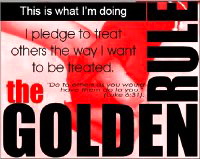 The firmly established default Christian proclamation on the “question” of homosexuality is that being inclined toward it is no different than being inclined toward any other kind of sinful behavior.
The firmly established default Christian proclamation on the “question” of homosexuality is that being inclined toward it is no different than being inclined toward any other kind of sinful behavior.
“We’re all sinners,” runs the refrain. “We all struggle to overcome our sinful ways. Homosexuality is a sin. Just like all of us must strive to control our sinful behavior, so the homosexual must strive to overcome his or her sexual predilection. Even if a person is born gay or lesbian — even if homosexuality is genetic — a homosexual must still strive to overcome the ungodly behaviors toward which he or she is inclined, the same as we all must overcome our lower nature in order to realize our highest.”
That proposition is so logically flawed it should embarrass any Christian who hears it, much less says it. It completely ignores the crucial, absolute difference between homosexuality and the other sins people typically struggle against committing, which is that committing virtually every kind of sin except homosexuality objectively and tangibly hurts someone. If you lie, steal, cheat, rob, have an extramarital affair, be too greedy, be too selfish, waste your family’s money, and/or do any other kind of sin you can think of, someone, in no uncertain or abstract terms, gets hurt.
But you take the Bible out of the equation, and what grounds is there for determining that homosexuality is wrong? Whom does such love hurt? When two men are affectionately holding hands, who is getting hurt? When two women are snuggling together on their couch, who is getting hurt?
Virtually all other behaviors Christians typically consider sinful can be readily understood as objectively and clearly wrong without any reference to the Bible. But you take the Bible out of a Christian’s hands, and he has no arrow left to shoot at the gay man or lesbian. He’s without recourse, justification, argument. Without his Bible to quote from, he has virtually nothing upon which to base his claim that homosexuality is wrong.
A dim-witted child could see that homosexuality simply does not belong in the category of “sin.” It’s distinctly, absolutely, categorically different than sinning. It’s like placing a robot in a pen with a bunch of farm animals, and then claiming that what makes the robot a farm animal is that a book you believe in says that robots are farm animals. That’s cool for you. But it doesn’t change the objective, empirical fact that robots aren’t farm animals. You’ve made the mistake of claiming that a subjective truth of yours is equal to an objective truth of everyone else’s in the world. It’s not. A robot shouldn’t be classified as a farm animal, because it doesn’t meet the first, most important criterion of being a farm animal, which is being an animal. Similarly, homosexuality shouldn’t be classified as a sin, because it doesn’t meet the first, most important criterion of being a sin, which is manifestly causing harm.
I’m a Christian, and no two ways about it. But I can’t be a Christian so severely lacking in logical powers that I don’t notice the difference between homosexuality and the kinds of sin people pretty much do all the time. The latter hurts people; the former doesn’t. I can’t help that; and I’d certainly rather not shame myself by attempting to argue it.
Also, it’s high time Christians were honest about the fact that asserting that homosexuals should stop acting homosexual necessarily means asserting that they should spend their lives never knowing the loving intimacy with another that straight people enjoy and know to be the best and richest experience in life. Asking a homosexual to give up homosexual love isn’t at all like asking him to give up booze, or greed, or any other such negative thing. It’s asking him to give up love.
If I were gay, and I lived as most Christians would prescribe for me as ideal, I would live alone. I’d wake up every morning next to no one. I’d never hold hands with anyone. I’d never kiss or be kissed by anyone. I’d never cuddle up with anyone. I would not know the profound pleasure of every day growing older with anyone. For me, remaining as sinless as possible would mean never knowing love of the sort that all straight people, Christian or not, understand as pretty much the best thing life has to offer.
I hear a lot of Christians asserting that gays and lesbians should stop acting like gays and lesbians. But I never hear any of them saying the unavoidable follow-up to that — saying what that actually means — which is that gay and lesbian men and women should spend their lives never experiencing what people most commonly mean when they use the word “love.”
When, all along, the Bible repeatedly, emphatically, and explicitly tells us that God is love.
Something is seriously wrong somewhere in the mix between Christians and Christianity. (And it’s spelled Paul — whom I love, but about whom we really should be more clear. But that’s for another post.)
I want to be the very best Christian I can. And that means being as scrupulously honest as I can. And on the topic of homosexuality, that means admitting that being gay is not like any other sin, and that the Christian proscription of homosexuality is nothing less than a call for anyone who is gay to live their entire life never experiencing the physical expressions of love that all of we straight people happily accept as one of the very best things about being alive. Those two things are true, no matter how many logic-challenged pastors daring to call themselves compassionate Bible lovers claim they’re not.












